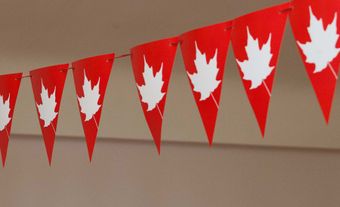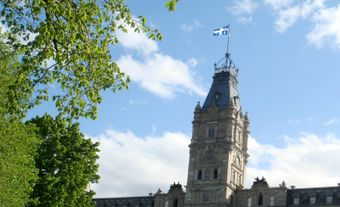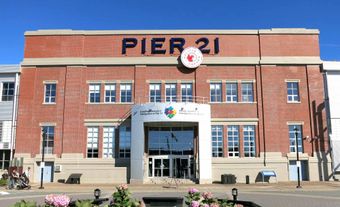British Columbia
British Columbia is Canada's most westerly province, and is a mountainous area whose population is mainly clustered in its southwestern corner. BC is Canada’s third-largest province after Québec and Ontario, making up 10 per cent of Canada’s land surface.
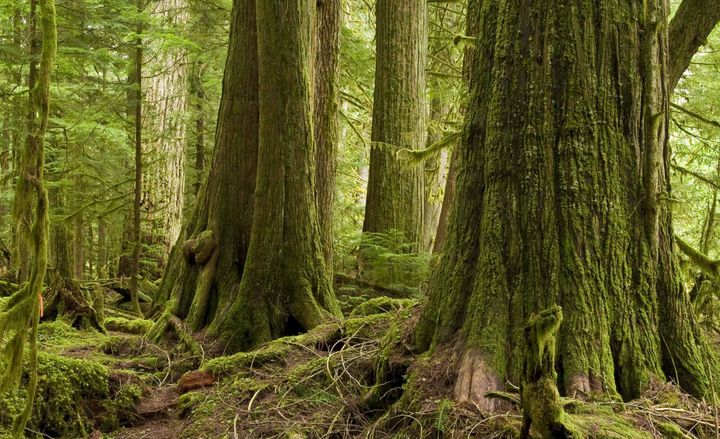
-
May 28, 1808
People
Simon Fraser Explores the Fraser River Canyon
Simon Fraser is best known for his daring exploration of the Fraser River. On 28 May 1808, hoping to discover a new transportation route to the Pacific, Fraser left Fort George with two clerks, 16 voyageurs and two Indigenous guides. With Indigenous assistance, the party survived the turbulent waters and hair-raising cliff-side portages.
-
April 25, 1858

Resources and Environment
Fraser River Gold Rush
The first wave of miners from California arrived at Victoria, en route to the Fraser River Gold Rush. The Gold Rush caused a precipitous decline in the Indigenous population and politically unified British Columbia.
-
April 26, 1858
People
First Black Californians Arrive in BC
On the invitation of James Douglas, the governor of British Columbia, the first ship carrying Black Californians landed in Victoria on 26 April 1858. By summer's end, more than 800 Black settlers had arrived. While government legislation suggested that equality prevailed, in truth, convention and little enforcement allowed acceptance to give way to segregation.
-
May 30, 1858
People
Hudson's Bay Co Charter Revoked
The Hudson's Bay Co charter to what is now mainland British Columbia was revoked.
-
August 02, 1858
People
BC a Crown Colony
An imperial Act provided for the government of British Columbia as a Crown colony, to include the Queen Charlotte Islands but excluding Vancouver Island; Victoria was the new capital.
-
November 19, 1858
People
Douglas Appointed Governor Of BC
At Fort Langley, Judge Matthew Begbie read aloud the Queen's commission making James Douglas the governor of the new colony of British Columbia.
-
June 08, 1859
People
Supreme Court of British Columbia Established
The Supreme Court of British Columbia was established.
-
August 17, 1862

Resources and Environment
Cariboo Gold Rush
Gold was discovered on Williams Creek in the Cariboo region of British Columbia, touching off the Cariboo Gold Rush.
-
August 06, 1866
People
British Columbia Unites
An imperial statute established the political union of Vancouver Island and the mainland of BC as the colony of British Columbia.
-
July 20, 1871

People
British Columbia Joins Confederation
British Columbia entered Confederation as the sixth province. The legislature met for the first time after Confederation on 15 February 1872.
-
May 14, 1880

Communication and Transportation
CPR Enters British Columbia
Construction of the CPR began in BC under the direction of Andrew Onderdonk.
-
January 01, 1885
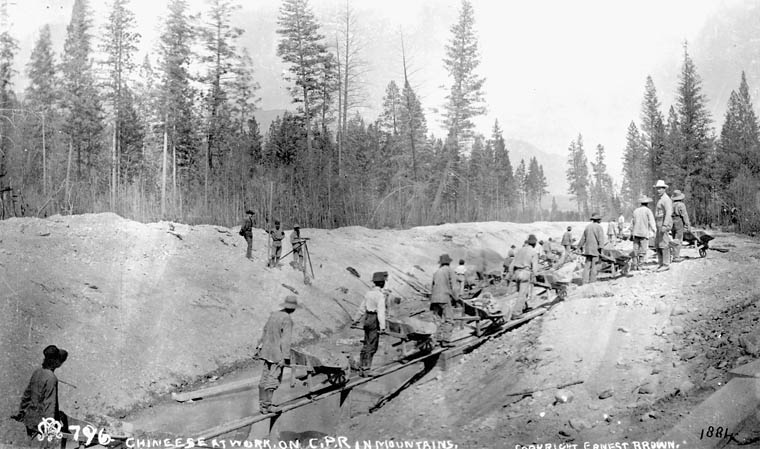
Communication and Transportation People
Chinese Labourers and the CPR
Some 15,000 Chinese labourers completed the British Columbia section of the CPR, with more than 600 of them perishing under adverse working conditions during this essential construction. Largely because of the trans-Canada railway, Chinese communities developed across the nation.
-
March 31, 1885

People
Chinese Act Disallowed
The federal government disallowed the British Columbia Act restricting Chinese immigration.
-
January 01, 1886

Resources and Environment
Glacier National Park Established
Glacier National Park was established in British Columbia. Glacier is famous for its black and grizzly bears, which find abundant forage on the park's avalanche slopes.
-
June 05, 1889
People
Death of John Hamilton Gray
John Hamilton Gray, one of the Fathers of Confederation, died in Victoria, British Columbia. An early supporter of British North American union, Gray lost his seat in New Brunswick due to the province’s anti-Confederation sentiments. He was elected to the House of Commons in the first general election in the Dominion of Canada.
-
January 01, 1897
People
First Sikhs in Canada
The first Sikhs came to Canada at the turn of the 20th century. Some came to Canada as part of the Hong Kong military contingent en route to Queen Victoria's Diamond Jubilee (1897) and the coronation of Edward VII (1902), and returned to Canada to establish themselves in British Columbia. More than 5,000 South Asians, more than 90 per cent of them Sikhs, came to British Columbia before their immigration was banned in 1908.
-
September 10, 1904
Communication and Transportation
First Train Robbery in Canada
“Gentleman Bandit” Bill Miner and two accomplices were involved in Canada’s first train robbery. They robbed a Canadian Pacific Railway car near Mission, British Columbia, of $7,000.
-
May 08, 1906
Communication and Transportation
Miner Strikes Again
“Gentleman Bandit” Bill Miner and his gang robbed a second Canadian Pacific Railway train, near Kamloops, British Columbia. RCMP officers captured the robbers days later. Miner was sentenced to 25 years but escaped prison the following year.
-
March 07, 1908

Sports and Culture
UBC Founded
The University of British Columbia was founded. It began operations in 1915.
-
March 10, 1910

Indigenous Peoples
Death of S7ápelek (Chief Joe Capilano)
S7ápelek, also known as Chief Joe Capilano, was a Squamish Nation member and one of the most influential Indigenous leaders in British Columbia. Beginning in the late 19th century, S7ápelek became better known as Chief Joe Capilano and spent the rest of his life advocating for Canada’s recognition of Indigenous rights.
-
April 05, 1917
People
BC Women Get Vote
British Columbia women (except Asian and Indigenous women) won the rights to vote and to hold provincial office.
-
July 09, 1917

People
First Woman Judge in BC
Helen Gregory MacGill was appointed the first woman judge in British Columbia.
-
January 05, 1918
People
Birth of Dal Richards
Beloved swing bandmaster Dal Richards was born in Vancouver, BC. The clarinetist, saxophonist, arranger and conductor was a fixture in the Vancouver-area music scene from the 1930s until the 2010s. Having famously performed New Year's Eve shows 79 years in a row until 2014, Richards died at 11:41 p.m. on New Year's Eve 2015.
-
July 01, 1920
Indigenous Peoples
Dominion Elections Act
The Dominion Elections Act enfranchised many of those who had been disenfranchised during the First World War, such as those originating from countries with which Canada had been at war. However, the Act stated that anyone who was disenfranchised by provincial legislation because of race would remain disenfranchised from the federal vote. This included persons of Chinese origin in Saskatchewan, and those of Indigenous, Chinese, Japanese, and South Asian origins in British Columbia.
-
January 01, 1922
Communication and Transportation
British Columbia Switched to the Right Side of the Road
Drivers in British Columbia, having been accustomed to driving on the left side of the road, switched to driving on the right side at 2:00 a.m. There were no accidents.
-
December 10, 1927
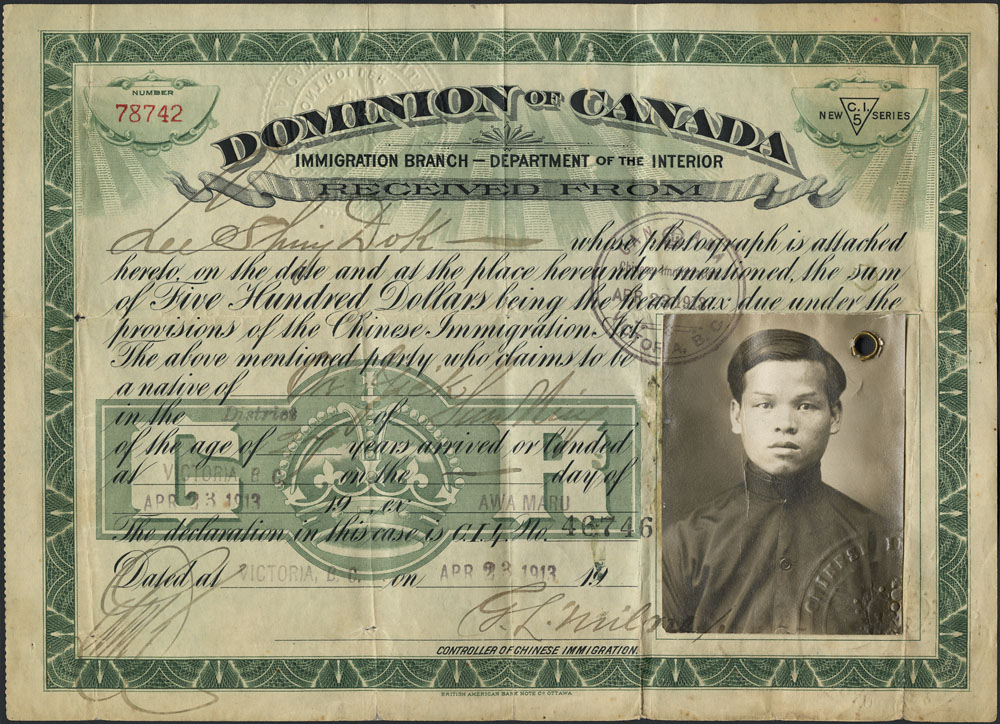
People
Birth of Margaret Jean Gee
Margaret Jean Gee was born in Vancouver, BC. In 1953, she became the first woman of Chinese descent to graduate in law at the University of British Columbia. The following year, she became the first Chinese Canadian woman in British Columbia to be called to the bar.
-
February 26, 1942
People
Japanese Relocation
Following the Japanese strike on Pearl Harbour, the federal government interns 22,000 Japanese men, women and children in British Columbia for the remainder of the war. The government apologizes for Japanese internment in 1988. Similar actions had taken place in 1914, with the internment of nationals from Germany, and the Austro-Hungarian and Turkish Empires.
-
January 01, 1949
Indigenous Peoples
First Nations Win Right to Vote Provincially
Except in Nova Scotia and Newfoundland, Status Indians had been barred from voting provincially. Beginning with British Columbia in 1949 and ending with Quebec in 1969, First Nations peoples gradually win the right to vote in provincial elections without losing status or treaty rights.
-
April 01, 1949
People
Japanese Canadians Enfranchised
Japanese Canadians were given the right to vote, and the legal restrictions used to control the movement of Japanese Canadians were removed. With their freedom reestablished, some moved back to British Columbia. But due to the hardships suffered, most Japanese Canadians who were expelled from the coast or deported did not return. With the extension of the federal franchise to Japanese Canadians, the last statutory disenfranchisement of Asians was removed.
-
December 12, 1949
People
First Woman Speaker
Nancy Hodges was named Speaker of the BC Legislature, the first woman to hold the post of Speaker in the British Commonwealth.
-
September 24, 1950
Resources and Environment
“Great Smoke Pall”
Drifting sulphur particles from British Columbia and Alberta forest fires caused the sun and moon to look blue or violet throughout areas of North America and Western Europe. The “great smoke pall” of September 1950 was unique in its scope and intensity.
-
July 18, 1958
Communication and Transportation
BC Ferries Assume Passenger Service
Premier Bennett announced that the British Columbia Ferry Authority (BC Ferries) would assume passenger service from the islands to the mainland.
-
July 19, 1958
Indigenous Peoples
Royal Totem Presented to Queen Mother
Kwakwaka'wakw Chief Mungo Martin (Naka'pankam) presented the Royal Totem to Her Majesty the Queen Mother in London, who accepted on behalf of Queen Elizabeth II, to mark the centennial of the creation of the colony of British Columbia.
-
May 08, 1961
Communication and Transportation
Pattison Opens Car Dealership
Jim Pattison opened his first car dealership, Jim Pattison Ltd, located on Cambie Street in Vancouver. In 1987 Pattison was awarded the Order of Canada, and in 1990, the Order of British Columbia.
-
October 21, 1971
Sports and Culture
BC Sports Hall of Fame Opens
The British Columbia Sports Hall of Fame opened in the BC Pavilion at the Pacific National Exhibition. It is currently located at BC Place, Vancouver.
-
October 01, 1972
Sports and Culture
First Episode of The Beachcombers
CBC’s The Beachcombers, Canada’s longest-running television series, aired its first of nearly 400 episodes. Filmed and set on the coast of British Columbia, and syndicated around the world, the comedy-drama starred Bruno Gerussi, Pat John and Robert Clothier.
-
October 26, 1975
Indigenous Peoples
First World Conference of Indigenous Peoples
Port Alberni, British Columbia, hosted the first World Conference of Indigenous Peoples. Several hundred representatives, from Canada and 18 other countries, attended. Topics under discussion included social, economic and political justice; the preservation of cultural identity; and natural resources and the environment.
-
April 01, 1980
Indigenous Peoples Sports and Culture
Reid’s The Raven and the First Men Dedicated
Haida artist Bill Reid’s sculpture The Raven and the First Men was unveiled and dedicated by His Royal Highness Prince Charles at the University of British Columbia’s Museum of Anthropology, where architect Arthur Erickson had designed a special place for it. The monumental yellow-cedar sculpture, which had to be lowered into place by crane through a skylight opening, depicts the Haida creation legend.
-
January 01, 1981
Sports and Culture
Joy Kagawa’s Obasan Published
In 1981, Joy Kogawa’s Obasan, the first novel to trace the internment and dispersal of 20,000 Japanese Canadians from the West Coast during the Second World War is published. Kogawa was made a member of the Order of Canada in 1986. In 2006, her family's original Vancouver home was purchased by the Land Conservancy of British Columbia, and saved from imminent demolition, a testament to the significance of Kogawa's work for the history and culture of British Columbia.
-
April 21, 1989
People
Order of British Columbia Created
The Order of British Columbia was established to honour people of great distinction who excel in any field of endeavour benefiting the people of BC.
-
April 21, 1995
People
Gardom Appointed BC Lieutenant-Governor
The Honourable Garde Basil Gardom was installed as British Columbia's 26th lieutenant- governor.
-
December 08, 1995
Resources and Environment
Tougher Emissions Standards
British Columbia announced new vehicle emissions standards - the toughest in Canada. As of 1998, all new cars sold in the province would have to meet tougher emission standards.
-
February 15, 1996
Indigenous Peoples People
Nisga'a Land Claim Agreement
Federal and provincial officials signed an agreement of land claims with the Nishga'a in northwestern British Columbia. The Final Agreement calls for cash payments to the Nisga'a of approximately $190 million over a period of years, and recognizes the communal ownership and self-governance of about 2,000 km2 of Nisga’a lands in the Nass River Valley.
-
February 18, 1996

People
Glen Clark Becomes Premier
Employment and Investment Minister Glen Clark won the leadership of the British Columbia NDP. He was sworn in as premier, replacing Mike Harcourt, on February 22.
-
April 05, 1996
Disasters
Mass Murder in Vernon, BC
Rajwar Gakhal, along with her father, mother, four sisters, brother, and the husband of one of the sisters, were shot to death by Gakhal's 30-year-old ex-husband, who later shot and killed himself. Gakhal's family was gathered for the wedding of Balwinder Kaur Gakhal, one of the four sisters. At the time, the nine victims represented the second-largest mass murder in Canadian history, behind the École Polytechnique Tragedy (Montreal Massacre).
-
May 28, 1996

People
NDP Re-elected in BC
The NDP were re-elected in British Columbia with a 2-seat majority. Glen Clark remained premier.
-
March 02, 1999

People
RCMP Raid Clark's Home
The RCMP raided the home of British Columbia premier Glen Clark as part of an investigation over possible improprieties in the application for a casino licence.
-
August 21, 1999

People
Glen Clark Resigns
BC premier Glen Clark resigned one day after it was revealed that he was under investigation for exerting political influence to advance a friend's application for a casino licence. He was later cleared of all charges.
-
August 29, 2002

People
Glen Clark Acquitted
Former BC premier Glen Clark was acquitted in a casino licensing scandal that had forced him from office. He was accused of receiving free home and cottage repairs.
-
January 01, 2010

Resources and Environment
Gulf Islands National Park Reserve Established
Gulf Islands National Park Reserve was established. The park reserve is located in the southern Gulf Islands between Vancouver Island and the British Columbia mainland.
-
April 01, 2011
Indigenous Peoples
Maa-Nulth First Nations Settlement
The five Maa-Nulth First Nations in British Columbia settled their final agreement. The settlement area covered several regions on Vancouver Island. It included special rights pertaining to the fish, migratory birds and animal life used in ceremonies and social rituals. The community signatories negotiated commercial fishery licences separately, and these licences are not protected under the Constitution Act, 1982.
-
April 11, 2013
Indigenous Peoples
Yale First Nation Final Agreement
After lengthy negotiations, the Yale First Nation Final Agreement was signed. The First Nation’s traditional lands are located within British Columbia’s Fraser Valley. The Agreement includes exclusive rights to use fish and plants for social rituals and ceremonies. It also gives special allotments of salmon for social and ceremonial events.
-
June 26, 2014

Indigenous Peoples
Tsilhqot'in First Nation Granted Title Claim in Supreme Court Ruling
Tsilhqot’in First Nation was granted title to 1,700 km2 of land in British Columbia after a Supreme Court of Canada ruling, the first to grant a declaration of Aboriginal title to a First Nation.
-
December 03, 2015
People
Death of Bill Bennett
Former British Columbia premier Bill Bennett died in his hometown of Kelowna, BC. He succeeded his father, W.A.C. Bennett, as Social Credit party leader and then premier, an office he held from 1975 to 1986. Known for his strong commitment to public service and his fiscally conservative policies, Bill Bennett has been credited with spearheading development that modernized the province. Some of his notable projects include the Lower Mainland's SkyTrain, the Coquihalla Highway and Expo 86.
-
December 31, 2015
People
Death of Dal Richards
Beloved swing bandmaster Dal Richards died in Vancouver, BC, at age 97. The clarinetist, saxophonist, arranger and conductor was a fixture in the Vancouver-area music scene from the 1930s until the 2010s. Having famously performed New Year's Eve shows 79 years in a row until 2014, Richards died at 11:41 p.m. on New Year's Eve 2015.
-
January 29, 2016
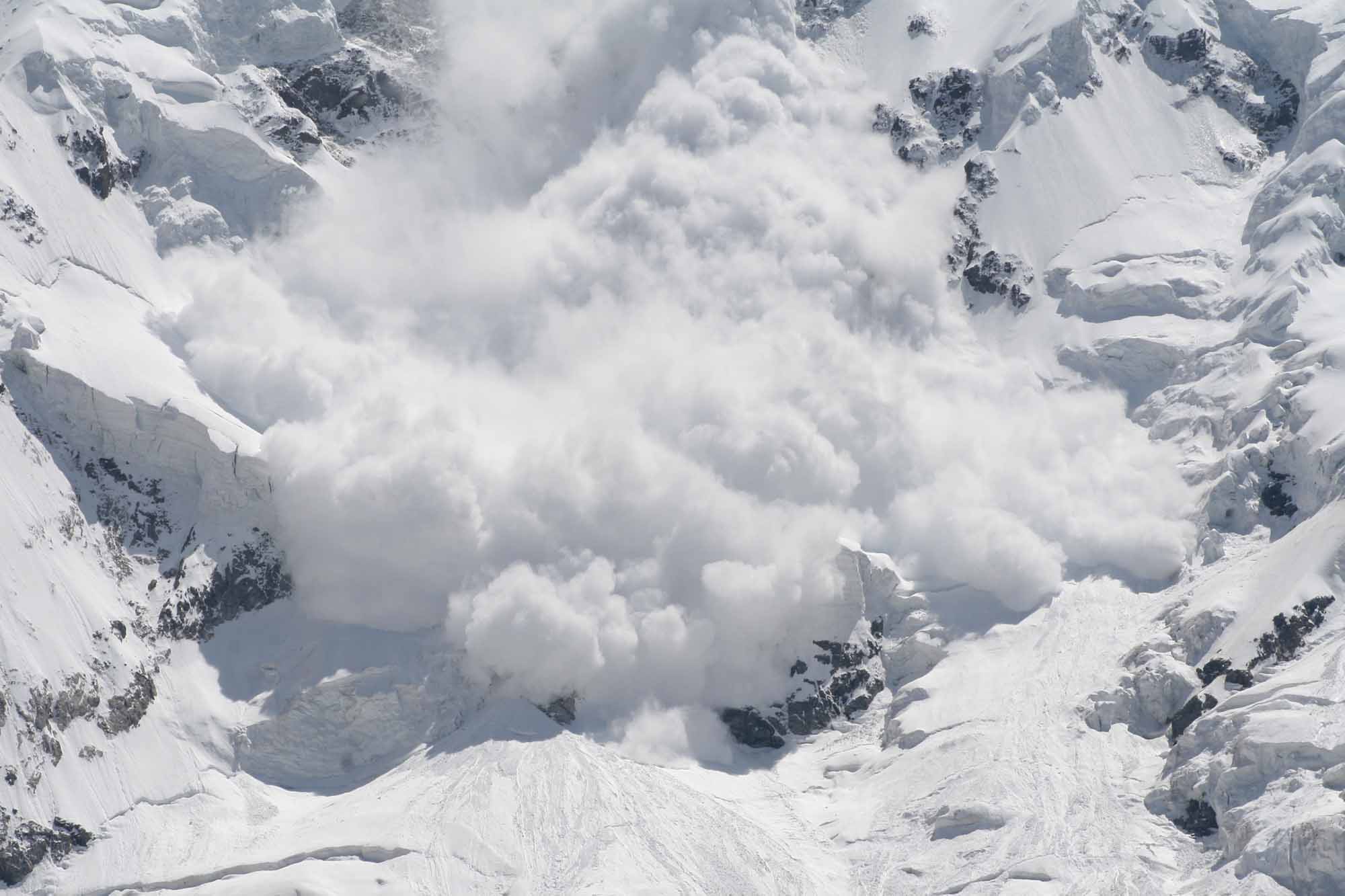
Disasters
Avalanche Kills Five Near McBride, BC
An avalanche killed five snowmobilers near McBride, British Columbia. Reports stated the disaster was human-triggered, though officials did not suspect any wrongdoing. In total, 17 people were caught in the avalanche.
-
February 11, 2016
Indigenous Peoples
Last Fluent Nuchatlaht Speaker Dies
Alban Michael, the last fluent speaker of the Nuchatlaht language, died in Campbell River, British Columbia, at age 89. Raised on Nootka Island, Michael spoke only Nuchatlaht until he was forced to learn English at a residential school in Tofino as a child. He nevertheless maintained his fluency in Nuchatlaht so that he could speak with his mother, who did not speak English.
-
August 03, 2016

People
Death of Mel Hurtig
Publisher and nationalist Mel Hurtig, who first published The Canadian Encyclopedia (1985 and 1988), died in Vancouver, British Columbia. The Edmonton native also co-founded the Council of Canadians and wrote a number of books on Canadian society and politics.
-
September 14, 2016
Sports and Culture
Chernove Wins Gold at Rio Paralympics
At the 2016 Paralympic Summer Games in Rio de Janeiro, Brazil, cyclist Tristen Chernove won gold in the road time trial with a time of 27:43.16. The Cranbrook, British Columbia resident would finish the Games with additional silver and bronze medals in track cycling events.
-
September 16, 2016

People
Death of W.P. Kinsella
Writer W.P. Kinsella died in Hope, British Columbia, at age 81. Kinsella was known for his baseball stories — particularly the 1982 novel Shoeless Joe — and humorous fiction set on the Ermineskin Reserve. His collection Dance Me Outside was made into a film of the same name by Bruce McDonald, and it eventually inspired the CBC television series The Rez (1996). While Kinsella defended his freedom to write about any subject, some critics have objected to his appropriation of Indigenous culture and his use of stereotypes.
-
September 17, 2016
Sports and Culture
Stillwell Finishes Rio Paralympics with Two Gold Medals
At the 2016 Paralympic Summer Games in Rio de Janeiro, Brazil, wheelchair racer Michelle Stillwell completed the 100 m race in a world record–setting time of 19:42. It was her second gold medal of the Games after winning the 400 m race a week earlier. A native of Winnipeg, Manitoba, and a serving MLA in British Columbia, Stillwell previously earned a gold medal for wheelchair basketball in 2000.
-
October 04, 2016
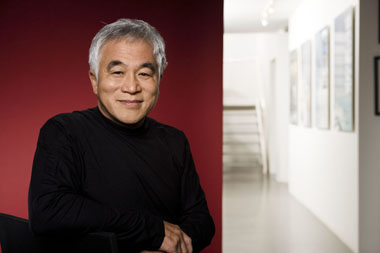
People
Death of Bing Thom
Architect Bing Thom died on a trip to Hong Kong, the city of his birth, at age 75. As a child, Thom immigrated to Canada and went on to study architecture at the University of British Columbia and the University of California at Berkeley. He founded his own firm in Vancouver in 1982 and designed many acclaimed commissions around the world in the decades that followed. His projects in the Vancouver area include the Chan Centre for the Performing Arts at UBC, the Surrey City Centre Library and the Guildford Aquatic Centre. Thom was appointed a Member of the Order of Canada in 1995 and received many other honours and awards for his work.
-
November 14, 2016

People
Death of Janet Wright
Actor and director Janet Wright died in Vancouver, British Columbia, at age 71. Born in England and raised in Saskatoon, Saskatchewan, Wright built a successful career in theatre, film and TV, with notable roles at The Stratford Festival, in feature films such as McCabe and Mrs. Miller and The Perfect Storm, and in TV series such as CTV’s Corner Gas.
-
May 09, 2017
People
BC Elects First Minority Government Since 1952
The 2017 election in British Columbia resulted in the province’s first minority government since 1952. In the initial outcome, Premier Christy Clark’s Liberals held onto power with 43 seats, while the NDP won 41 and the Green Party, 3. Later that month, however, Green Party leader Andrew Weaver and NDP leader John Horgan jointly announced that the Greens would support the NDP on any confidence motion. Finally, on 29 June, the Liberals lost a confidence motion put forward by the NDP, and Lieutenant-Governor Judith Guichon asked the NDP to form a government under the leadership of Horgan.
-
May 24, 2017
People
Death of Grace McCarthy
Trailblazing Social Credit politician Grace McCarthy died at the age of 89. McCarthy was a cabinet minister in British Columbia under Bill Bennett (1975–86) and Bill Vander Zalm (1986–88).
-
June 29, 2017

People
BC Liberals Toppled by Vote of Non-Confidence
After the 2017 provincial election in British Columbia resulted in a minority government, the NDP put forward a confidence motion that, with the support of the Green Party, overthrew Christy Clark’s Liberals. Lieutenant-Governor Judith Guichon asked the NDP to form a government under the leadership of John Horgan.
-
August 04, 2017

People
Christy Clark Retires from Public Life
Weeks after her minority government was toppled by a vote of non-confidence, Christy Clark stepped down as leader of British Columbia’s Liberal Party and as an MLA. Having spent six years as premier and more than two decades in politics, she stated that she was “done with public life.”
-
October 01, 2017
People
Four Canadians Killed in Las Vegas Mass Shooting
Among at least 59 people killed in the mass shooting perpetrated by Stephen Paddock at a music festival in Las Vegas, Nevada, were four Canadians: Jordan McIldoon of Maple Ridge, British Columbia; Jessica Klymchuck of Valleyview, Alberta; Calla Medig of Jasper, Alberta; and Tara Roe of Okotoks, Alberta. Several Canadians were among the more than 500 people injured in the attack, which was described as the largest mass shooting in modern United States history.
-
January 08, 2019
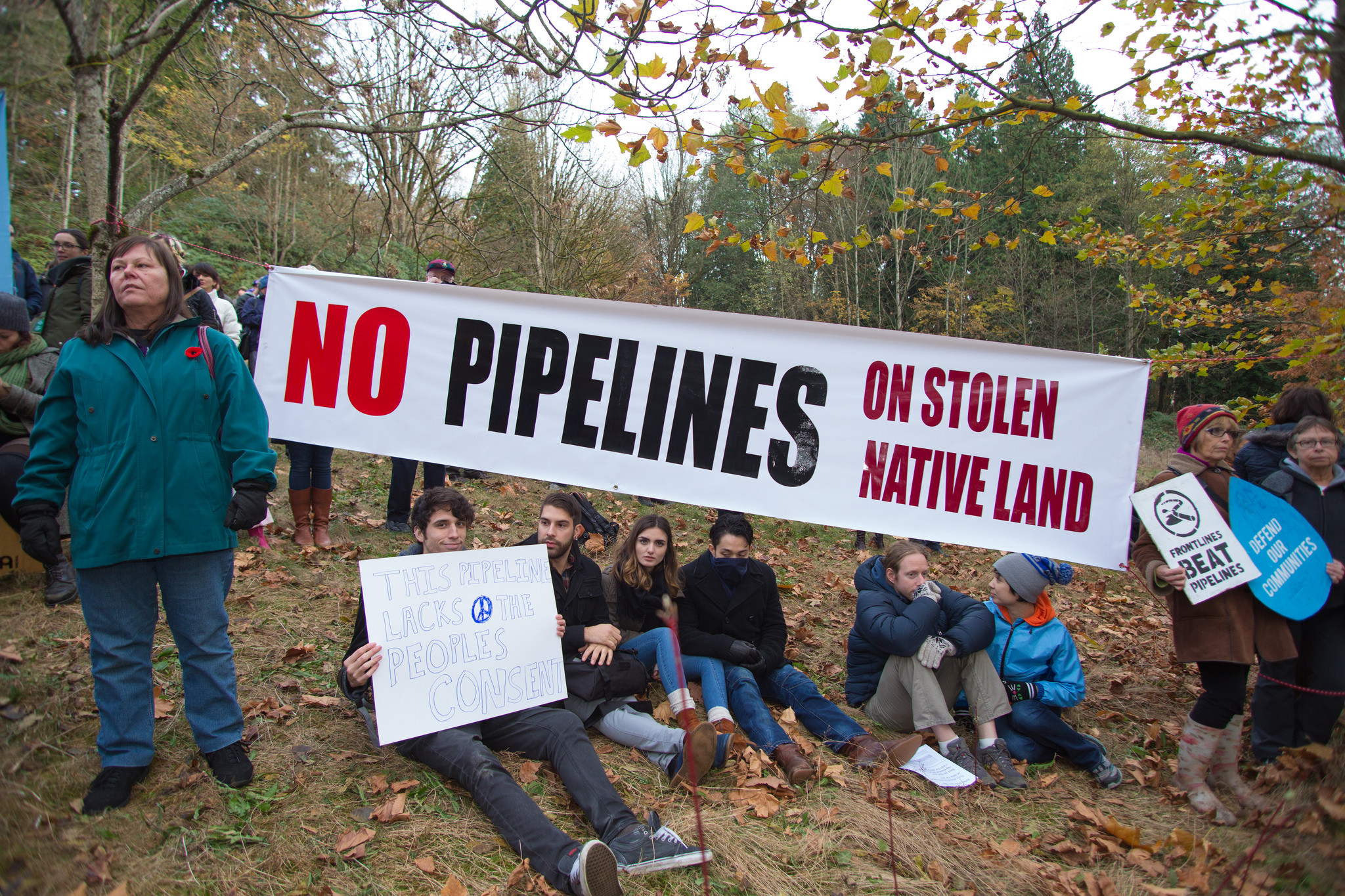
Indigenous Peoples Resources and Environment
RCMP Arrest 14 People at BC Pipeline Protest
Enforcing a BC Supreme Court injunction that was passed in December, RCMP officers entered a roadblock south of Houston, BC, and arrested 14 members of the Wet'suwet'en Nation. The protestors had been preventing workers from Coastal GasLink, a subsidiary of TransCanada Corp., from entering the area on the grounds that they did not have the consent of hereditary leaders to build a pipeline carrying natural gas from Dawson Creek to Kitimat. The following day, protests were held in cities across Canada in a show of support for the Wet'suwet'en Nation.
-
January 15, 2020

Indigenous Peoples Resources and Environment
Wet'suwet'en First Nation Protests Against Trans Mountain Pipeline
Environmental activists held protests on Vancouver Island and at the Toronto office of Deputy Prime Minister Chrystia Freeland, calling for the federal government to stop construction of the Coastal GasLink pipeline through the Wet'suwet'en First Nation territory in British Columbia. Coastal GasLink had obtained approval from the elected councils of 20 First Nations, but hereditary clan leaders refused to consent to the pipeline and demanded that it not proceed.
-
January 16, 2020

Resources and Environment
Supreme Court Dismisses BC’s Appeal of Trans Mountain Expansion
The BC government had asked the Supreme Court of Canada whether the province has jurisdiction over the expansion of the Trans Mountain pipeline from Alberta. The court ruled unanimously that it falls within federal jurisdiction.
-
May 27, 2021

Indigenous Peoples
200 Possible Unmarked Graves Found on Grounds of Kamloops Residential School
Ground disturbances indicating 200 possible unmarked graves were found using ground penetrating radar on the grounds of the former Kamloops Indian Residential School — at one time the largest residential school in the country. Chief Rosanne Casimir of the Tk’emlups te Secwepemc First Nation called the finding an “unthinkable loss that was spoken about but never documented.”
-
June 28, 2021

Indigenous Peoples
BC Commits $12 Million to Help First Nations Search More Residential School Sites
The British Columbia government committed $12 million to help First Nations in the province search the grounds of former residential schools for more unmarked children’s graves. Some of the funds were also directed toward mental health supports. The province said it would work with the First Nations Health Authority (FNHA), Indigenous Services Canada, and Crown-Indigenous Relations and Northern Affairs Canada to ensure that the funds went to projects led by First Nations.
-
June 30, 2021

Disasters
BC Town Destroyed by Fire Days after Setting High Temperature Record
As a “heat dome” wreaked havoc in British Columbia, the town of Lytton set the Canadian record for highest single-day temperature on 27 June, with 46.6˚C. It was the first temperature above 45˚C ever recorded in Canada. The town of about 250 people broke the record the next day with a temperature of 47.9˚C. Two days later, on 30 June, the town was wiped off the map by a wildfire that forced the evacuation of about 1,000 people and left two people dead.
-
July 01, 2021
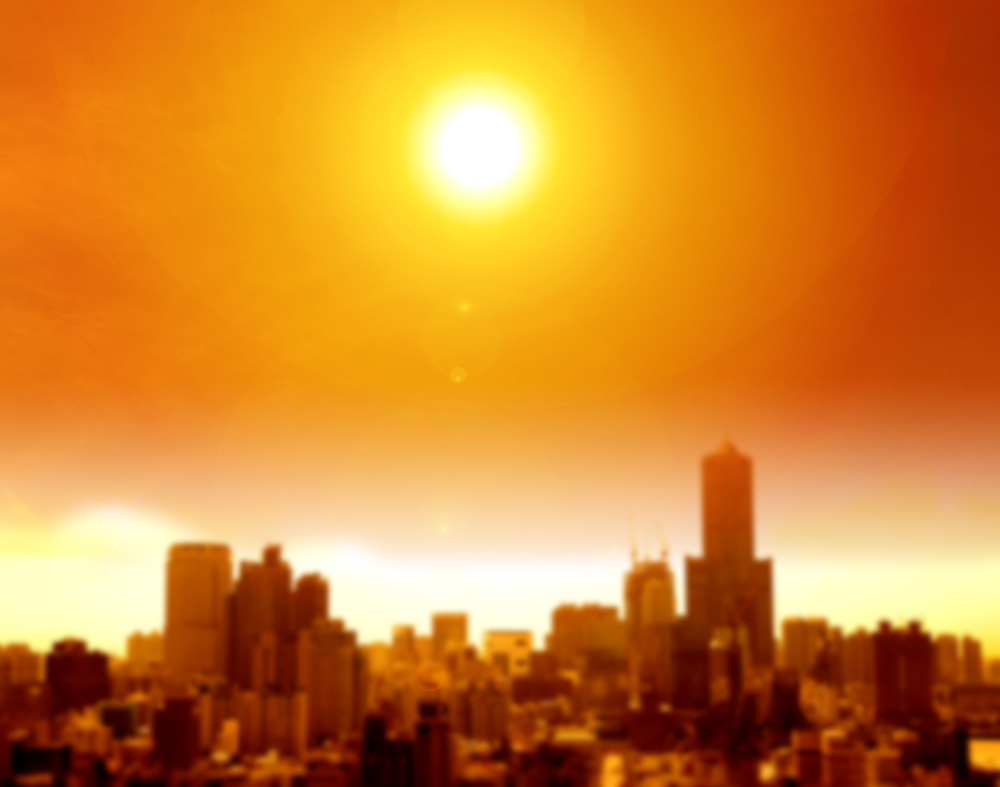
Disasters
570 Die from Heat in Deadliest Weather Event in Canadian History
A “heat dome” over much of Western Canada resulted in record-breaking temperatures between 25 June and 1 July, especially in British Columbia, where temperatures were routinely above 40˚C. It was estimated that around 570 people in the province died from the heat. Sarah Henderson, a scientific director at the BC Centre for Disease Control, called the heat dome “the most deadly weather event in Canadian history.”
-
July 12, 2021

Indigenous Peoples
160+ Possible Unmarked Graves Found at Another BC Residential School
Penelakut Tribe Chief Joan Brown said in a statement that more than 160 “undocumented and unmarked” graves had been found on Penelakut Island, formerly Kuper Island, off the coast of Vancouver Island southeast of Nanaimo. The possible graves were found at the site of the Kuper Island Industrial School, a residential school run by the Catholic Church from 1890 to 1969 and by the federal government from 1969 until 1975.
-
July 19, 2021

Disasters
300 Active Wildfires in BC
Twenty evacuation orders were in effect in British Columbia due to about 300 wildfires across the province. Twelve per cent of the fires were rated as “highly visible or a threat to life or property.” Smoke from the fires was also causing haze and myriad health issues throughout the province.
-
August 31, 2021

Disasters
More Than 1,000 Deaths from Drug Toxicity in BC So Far This Year
Five years since being declared a public health emergency by the BC government, the opioid crisis in the province showed no signs of relenting. A report from the BC Coroners Service found that in February 2021, BC’s illicit drug toxicity death rate was an average of 5.5 deaths per day and the number of deaths per 100,000 people due to illicit drug toxicity was the highest since 1995.
-
September 30, 2021

Indigenous Peoples
First National Day for Truth and Reconciliation
Canada recognized the first National Day for Truth and Reconciliation as an annual statutory holiday. The creation of the holiday was one of 94 recommendations in the Truth and Reconciliation Commission’s final report, which was published in June 2015. The holiday was officially created with the passage of Bill C-5 on 3 June 2021, less than two weeks after the confirmation of 215 unmarked children’s graves at the site of a former residential school near Kamloops, BC. Prime Minister Justin Trudeau made headlines on the first National Day for Truth and Reconciliation after he spent the day on vacation in Tofino, BC, rather than participate in any official events.
-
November 14, 2021

Disasters Resources and Environment
“Worst Weather Storm in a Century” Causes Floods, Wipes Out Highways and Kills Five in BC
A “significant atmospheric river” inundated the Lower Mainland and the southern interior of BC with a month’s worth of rain in less than 48 hours. Many communities recorded more than 100 mm of rain; the town of Hope had the most with 252 mm. A landscape scarred by forest fires and other effects of climate change resulted in severe mudslides and floods in 17 regional districts. Five people were killed in a mudslide on Highway 99 north of Pemberton, and hundreds of people in the province were evacuated by helicopter after they were stranded by mudslides on highways and roads. Stretches of the Coquihalla Highway and the Trans-Canada Highway were badly damaged or destroyed. The town of Merritt was flooded, forcing more than 7,000 residents to evacuate. The Sumas Prairie, an agricultural area between Abbotsford and Chilliwack that had once been a lake, was flooded, causing hundreds of millions in damages. The storm, which came four and a half months after a heat wave that killed almost 600 people in BC, also took a deadly toll on the region’s livestock. An estimated 628,000 poultry, 12,000 hogs and 420 dairy cows were killed and 110 beehives were destroyed.
-
October 20, 2023

Sports and Culture
Christine Sinclair Announces Retirement from International Soccer
Forty-year-old soccer legend Christine Sinclair announced that she would be retiring from international play at the end of the year. She ended her international career with 190 goals — the most by any player, man or woman, in history. Sinclair was named Canadian Player of the Year 14 times and Canada Soccer Player of the Decade in 2019. She led the Canadian women’s team to two bronze medals and one gold at the Olympic Summer Games. She retired from professional soccer on 27 September 2024.
-
May 31, 2024
People
Death of Serial Killer Robert Pickton
Serial killer Robert Pickton — who claimed to have murdered 49 women, most of them Indigenous, at his pig farm in Port Coquitlam, BC — was murdered in prison by a fellow inmate. Pickton was stabbed in the head with a broken broom or broom-like handle on 19 May. He was put on life support in a medically induced coma and died on 31 May.
-
August 04, 2024

Sports and Culture
Canada’s First Olympic Gold in Hammer Throw
Ethan Katzberg of Nanaimo, BC, the reigning world champion in men’s hammer throw, won Canada’s first ever Olympic gold medal in the hammer throw with a near-Olympic record throw of of 84.12 m at the Paris Olympics. No other competitor broke the 80 m barrier. Two Days later, Camryn Rogers, the world champion in women’s hammer throw, also won Olympic gold with a throw of 76.97 m. Rogers was the first Canadian woman to win Olympic gold in an individual track and field event since high jumper Ethel Catherwood in 1928.

